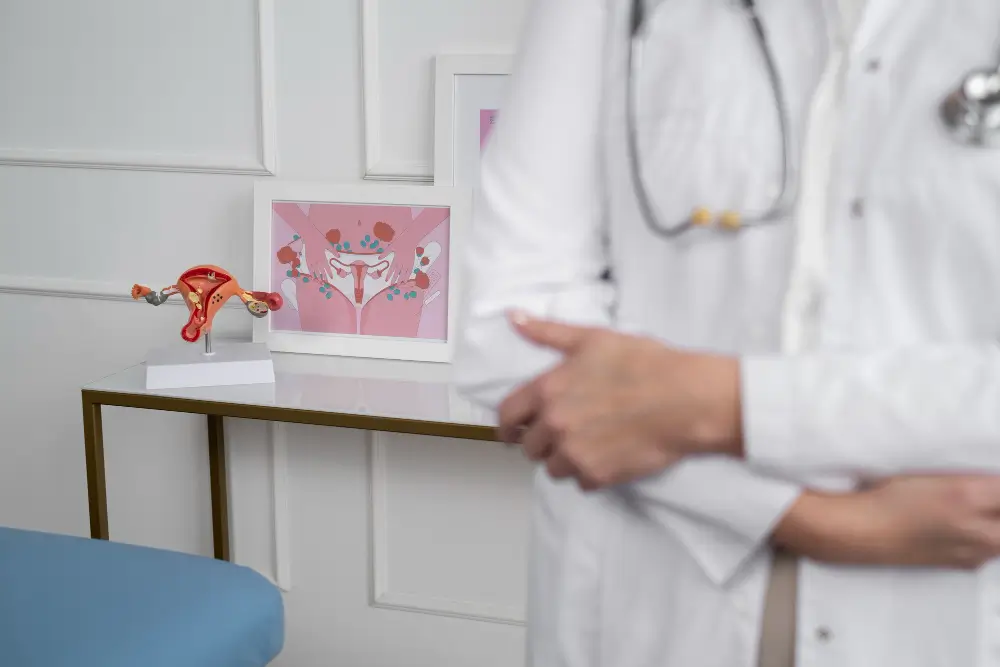Can a Primary Care Doctor Do a Pap Smear? Find Out Here
You visit your doctor for a routine check-up, and suddenly, the topic of a Pap smear comes up. But here’s the twist—can your primary care doctor actually perform one? It’s a question more common than you might think, and the answer might surprise you. Before you schedule that next appointment, there’s something you need to know about whether a Primary Care Doctor Do a Pap Smear…
TL;DR
Yes, primary care doctors can perform Pap smears if they are properly trained. A Pap smear is a quick, non-invasive test used to detect abnormal cervical cells that may indicate cancer or precancerous conditions. It’s essential for women’s health and is often done as part of routine care. However, if results are abnormal or complex, patients may be referred to a specialist like a gynecologist for further evaluation and treatment.
Connect with the best primary care physician Brooklyn today!

What is a Pap Smear and Why is It Important for Women’s Health?
A Pap smear, also known as a Pap test, is a key part of preventive care for women. This exam detects cell changes in the cervix that can signal early signs of cervical cancer or other health issues, giving patients a better chance of timely treatment.
What does the test involve?
A Pap smear involves collecting cells from the cervix for microscopic examination in a laboratory. The procedure includes the following steps:
- The patient lies on a medical table in a gynecological position.
- The external genital area is examined for visible abnormalities.
- A healthcare provider gently inserts a speculum into the vagina to view the cervix.
- A sample of cells is collected from both the inside and outside of the cervix using a spatula, a brush, or both.
- The sample is preserved on a slide or in a vial with a liquid solution for lab analysis.
Why is a Pap smear done?
This test serves several preventive and diagnostic purposes related to reproductive health:
- Early detection of cervical cancer: It’s the most effective way to identify cervical cancer in its earliest and most treatable stages.
- Detection of precancerous changes: It can catch abnormal cells before they turn into cancer.
- Detection of infections: It can help find infections caused by bacteria, fungi, or viruses, including HPV (Human Papillomavirus), which is linked to cervical cancer.
- Routine monitoring of gynecological health: It’s a regular part of checkups to monitor reproductive health.
A Pap smear is a simple yet powerful test that helps identify serious conditions and cellular changes. Getting tested regularly helps reduce future health complications.
A Pap Smear is a Simple Test for Cervical Health
A Pap smear is a quick, straightforward test that can identify problems before they become more serious.
Detecting abnormal cells early can:
- Improve chances of successful treatment.
- Allow for preventive interventions.
- Lower the risk of cervical cancer mortality.
This test plays a key role in protecting cervical health. Regular screenings can make a major difference in early diagnosis and effective care.
Primary Care Doctors Are Trained to Perform Pap Smears
Many people wonder if their primary care doctor can perform a Pap smear. The answer is yes. Most primary care providers are trained to conduct this important women’s health screening. Whether they do so can depend on their individual experience and the policies at their clinic or healthcare center.
Primary care doctors receive training in basic preventive procedures, including Pap smears. This training enables them to:
- Properly collect cervical cell samples.
- Conduct a basic gynecological exam.
- Follow up on results and refer to a specialist if needed.
Pap smears aren’t limited to primary care physicians. Other qualified professionals may also perform them:
- Advanced practice nurses: Trained in women’s health with clinical experience.
- Certified medical technicians: May collect samples under medical supervision.
- Doctors from other specialties: Sometimes involved in gynecological follow-ups.
Whether a primary care doctor performs Pap smears can vary based on individual training and the policies of the medical facility. Patients should confirm in advance who will perform the test and whether that person is trained to do so.
The Procedure is Quick and Non-Invasive
A Pap smear can easily be done during a routine visit. It’s fast and causes little to no discomfort, making it accessible and a valuable part of preventive health.
| Feature | Details |
| Duration | Just a few minutes |
| Type of procedure | Non-invasive, no incisions involved |
| Discomfort level | Usually mild or none; sometimes pressure or discomfort |
| Pre-test guidelines | Avoid sex, vaginal products, and menstruation |
| Common side effects | Light spotting afterward |
| Purpose | Early detection of cellular changes and cancer prevention |
This makes it a safe and effective option for regular preventive care. Getting Pap smears regularly can save lives by spotting potential problems early.
Primary Care Doctors Can Provide Routine Pap Smears
Preventive medical care plays a key role in spotting health issues early, and Pap smears are one of the most important tools for maintaining women’s reproductive health. If properly trained, primary care doctors can offer Pap smears during routine checkups, making the test more accessible to many patients.
When done by trained professionals, Pap smears allow women to access essential screenings without needing to see a specialist separately.
Primary Care Doctors Can Provide Routine Pap Smears as part of ongoing preventive care. Patients are encouraged to confirm in advance whether their provider offers this service.
You May Be Referred to a Specialist for Complex Cases
While primary care doctors can perform routine Pap smears, some situations require a specialist. If results from the test are abnormal or raise concerns, a referral to a gynecologist is often recommended for further evaluation.
Pap smears may reveal abnormal cells that don’t necessarily mean cancer but still require expert review. Situations that may lead to a referral include:
- Abnormal or unclear results.
- Signs of precancerous changes in cervical cells.
- Suspicion of early or advanced cervical cancer.
- Need for additional diagnostic tests like colposcopy or biopsy.
Gynecologists specialize in diagnosing and treating reproductive system conditions. If further evaluation is needed, they may:
- Conduct more detailed exams of the cervix.
- Confirm or rule out precancerous or cancerous changes.
- Recommend the most suitable treatment.
This type of referral should be seen as a helpful step to ensure thorough and complete care. Consulting a gynecologist when necessary can have a positive long-term impact on reproductive health.
Key Takeaways
- If properly trained, primary care physicians are qualified to conduct Pap smears as part of routine preventive care.
- A Pap smear is essential for women’s health
- This simple and quick test detects abnormal cervical cells that could indicate cancer or precancerous conditions.
- It plays a vital role in the early detection and prevention of cervical cancer and other health issues.
- The procedure is straightforward and minimally uncomfortable
- It takes only a few minutes, is non-invasive, and typically causes little to no pain.
- Some mild discomfort or spotting may occur after the procedure.
- Regular screenings are crucial
- Pap smears should be performed regularly, especially starting at age 21 or after becoming sexually active.
- Early detection through regular screening increases treatment success rates and reduces cancer mortality.
- Nurses, medical technicians, and some specialists may be trained and qualified to conduct the test under appropriate supervision.
- Not all primary care doctors perform Pap smears
- Whether a doctor performs the test can depend on their training and the policies of their healthcare facility.
- Patients should confirm in advance whether their provider offers the service.
- Specialist referrals are recommended for complex cases
- If results are abnormal or inconclusive, patients are typically referred to a gynecologist.
- Specialists can conduct further tests, such as colposcopy or biopsy, and determine the appropriate treatment.
- The Pap smear process includes multiple steps
- A healthcare provider collects cervical cells using a speculum and brush or spatula.
- Samples are then sent to a lab for microscopic analysis, either via conventional slide or liquid-based methods.
- Compared to conventional methods, liquid-based Pap smears reduce human error and allow for HPV DNA testing from the same sample.
- It ensures specialized evaluation and timely treatment, especially when abnormalities are detected.
Sources
- Pallett, A. (2020). What is a Pap Smear?. Reading time.
What is a Pap Smear?
- Spy, E. Tag: cytology.
https://labmedicineblog.com/tag/cytology/page/3
